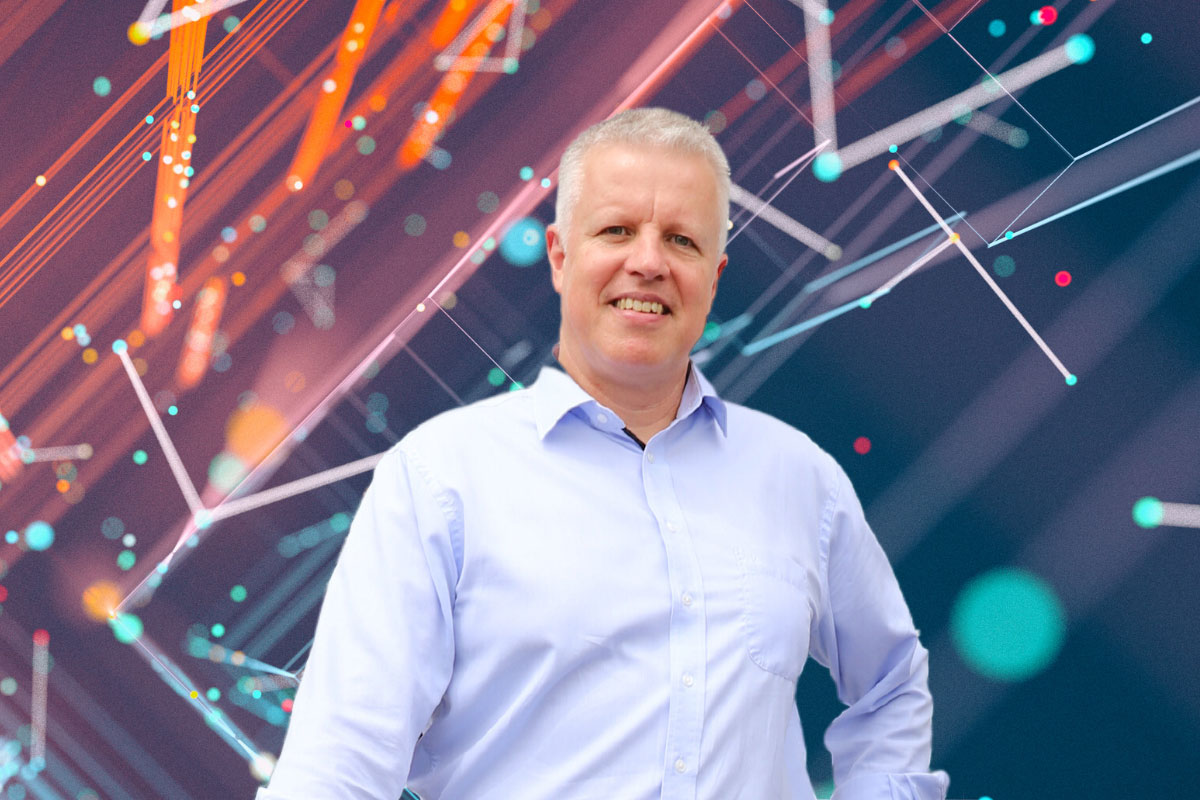Robert Rudolph – CEO of Park Innovaare since April 2023
Robert Rudolph previously served as the Head of Technology Transfer at the Paul Scherrer Institute PSI and most recently held a position on the executive board of the industry association Swissmem, where he was responsible for digitalization, innovation, research, and start-ups. Due to his extensive experience in the industrial and innovation sectors, Robert Rudolph is considered an expert in the Swiss Innovation landscape. He understands the need of companies and knows which interfaces are crucial. In a short interview, he answers questions on the topic of innovation, industry, and Park Innovaare.
How do you define innovation?
Essentially, innovation is about creating value for the company or customers through novel approaches. The activities at Park Innovaare are focused on technology-based innovations that can be translated into concrete applications. But it is also important to engage not only in product innovations but also in processes and services. Innovations are an absolute must for every company because they secure future competitiveness.
What obstacles do companies encounter in the innovation process, and how can Park Innovaare specifically assist?
Companies usually encounter three main obstacles when they are more actively engaged in innovation:
Firstly, a growing array of technologies
The range of available technologies is continuously expanding. This means that a company and its employee must cover a broader field of expertise to be able to utilize or even develop these technologies. Innovation departments often cannot afford to have the required critical mass of employees and additional resources.
Secondly, dynamics in global competition
A second challenge is the ever-increasing dynamics in technology-oriented international markets. New global competitors sometimes enter existing markets with new business models and put established providers under pressure not only in terms of pricing but also with their own innovations.
Thirdly, demanding risk assessment
Companies face a different risk situation today than in the past. More sophisticated technologies, higher dynamics, and the necessary capacities require larger investments in research and development. As business models in markets and supply chains change at the same time, risk assessment becomes increasingly complex.
One could describe the approach that Park Innovaare follows and offers to companies as “Together is better”. Instead of each company mastering the entire innovation process on its own, competencies, capacities, and business opportunities of partners are involved. Park Innovaare cultivates a business ecosystem with industry, academia, funding institutions, and start-ups, which provides companies with the means to identify the right partners. In addition to enabling concrete collaborative projects, we create a network where participants inspire each other and accelerate access to surprising ideas.
Innovation & subsidies, what distinguishes the Swiss industry?
Enormous subsidy injections that many countries administer to selected technologies or industries are, in my view, the wrong solution. The competitive and heavily export-oriented Swiss economy is diverse. In addition to the well-known advantageous location factors, it has two essential characteristics. Starting from a costly production site, companies have developed the ability to find and occupy global niches. These niche players, also known as “Hidden Champions”, can be found in many application areas, from machine tools to semiconductor technology. Furthermore, internationally active companies have learned to constantly reorient themselves due to past crises such as the global financial crisis, the Swiss franc shock, and supply chain bottlenecks, thereby gaining resilience. The combination of this diversity and resilience is a significant and, above all, sustainable strength of the Swiss industrial location.
How significant is digitalization in this context?
Digital technologies are of great importance across all industry sectors. Coupled with the increasing shortage of skilled workers in Switzerland, it is urgently necessary for digitalization to gain even more weight in education at all levels and especially in application-oriented research and development. This is not only about the technologies themselves but also about the accompanying processes of change within companies.
What kind of commitment should be pursued in terms of future innovations?
In an innovation ecosystem, actors influence each other. The transfer of technology solutions beyond individual application fields is becoming increasingly important and shows great potential. Another exciting field of innovation is supply chain. By cooperating along the supply chains, solutions can be created that collectively strengthen the competitiveness of the participants. These are important approaches for successful innovation activities. The goal of Park Innovaare’s commitment is to strategically attract technology or supply chain partners for Swiss economy to strengthen the innovation landscape and make it ready for the future. What needs to be prevented is the establishment of companies that absorb Swiss know-how and implement value creation in their own country of origin. There are too many examples of brilliant Swiss innovations that have ultimately celebrated economic success outside Switzerland. In the increasingly fierce international technology competition, the Swiss economy cannot afford this.

